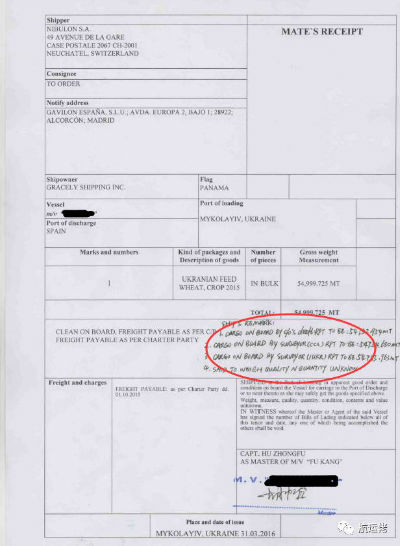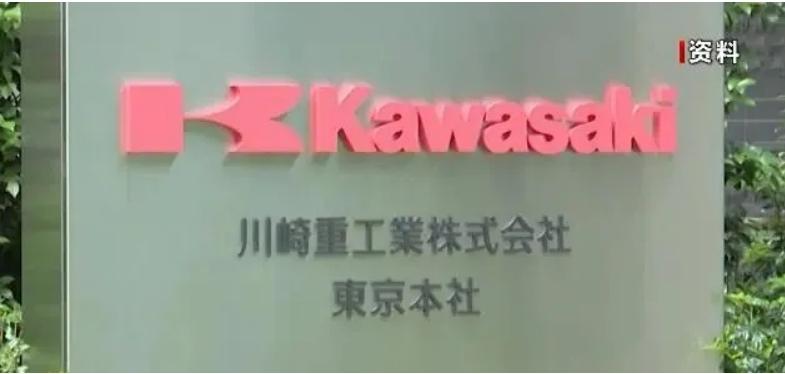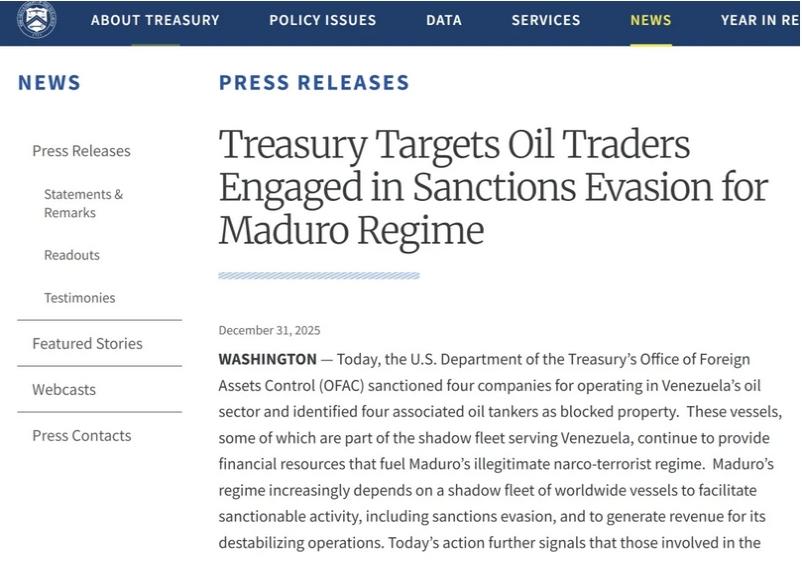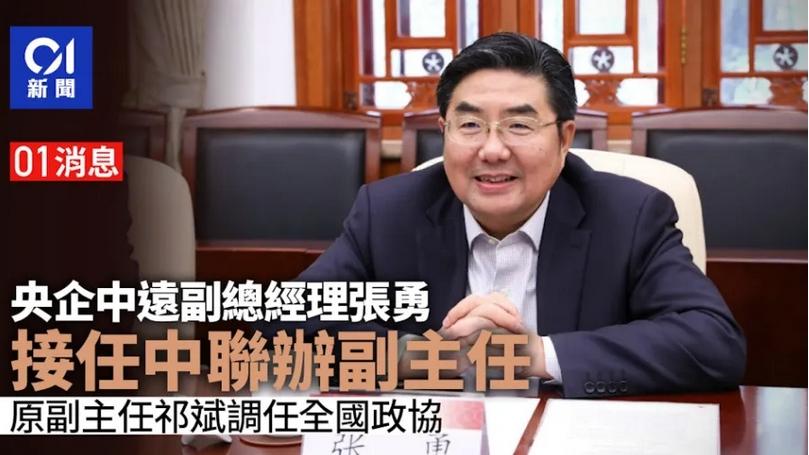【关键词】提单、欺诈、错误陈述、Fraud


1. CARGO ON BOARD BY C/O’S DRAFT RPT TO BE:
2. CARGO ON BOARD BY SURVEYOR(CCS)RPT TO BE:
3. CARGO ON BOARD BYSURVEYOR(IUKR) RPT TO BE:
4. SAID TO WEIGH QUALITY NQUANTITY UNKNOW.
之前文章曾提到,在大副收据上加了批注,租家或其代理如果签发了与大副收据不一致的提单,则租家违约,船东有权利索赔任何损失。F轮的船长也加上了第4点SAID TO WEIGH QUALITY NQUANTITY UNKNOW,加上这类的批注的好处是,如果在卸货港出现短货,船东将无需承担任何责任,此类问题在之前文章已经说明,不再重复。
实际中,租家代理所签发的提单并未包括大副收据上的批注,租家构成违约。需要说明的是,一位业务能力尤其是商务能力出众的船长,可以为船东避免很多问题;基本上任何问题都会被船长扼杀在萌芽之中,租家占不到任何便宜。比如货量有争议,就会在大副收据上加批注,通知租家,听从租家的指示,签还是不签,该如何签等等;而不是递个抗议书盲目选择开航。
有必要重提的是,如果货量有争议,一定要在大副收据上做好对应的批注;但如果在明明知道货量有争议的情况下,船长仍然选择签发清洁提单,这种虚假陈述则会构成欺诈侵权。
三、货物状况
煤炭铁矿等大宗散货,基本上不存在货物质量品质的问题,但在装粮食,白糖,卷钢等的时候,如果货物有问题,则船长必须做如实批注。必须牢牢记住,当船长签出带有货物描述的提单时,如果他明知道是错误,他还是签出了不实的提单,那么这种骗人的行为,就构成了欺诈。
那么先来了解一下相关先例对于欺诈的解释。
在Derry v Peek (1889)案中,Herschell勋爵说到,权威已经建立了如下论点,第一,为了维持欺骗的行为,必须有欺诈的证据;第二,当在已经知道、不相信是真的或大意不管是真是假这些情况作出了虚假陈述,则构成了欺诈。
Having now drawn attention, I believe, to all the cases having a material bearing upon the question under consideration, I proceed to state briefly the conclusions to which I have been led. I think the authorities establish the following propositions: First, in order to sustain an action of deceit, there must be proof of fraud, and nothing short of that will suffice. Secondly, fraudis proved when it is shewn that a false representation has been made (1)knowingly, or (2) without belief in its truth, or (3) recklessly, careless whether it be true or false. Although I have treated the second and third as distinct cases, I think the third is but an instance of the second, for one who makes a statement under such circumstances can have no real belief in the truth of what he states. To prevent a false statement being fraudulent, there must, I think, always be an honest belief in its truth. And this probably covers the whole ground, for one who knowingly alleges that which is false, has obviously no such honest belief. Thirdly, if fraud be proved, the motive of the personguilty of it is immaterial. It matters not that there was no intention to cheator injure the person to whom the statement was made.
虽然Herschell勋爵把第二个和第三个看作是不同的情况,但他认为第三个是第二个例子,因为在这种情况下发表声明的人不能真正相信他所说的真的。为了防止虚假陈述具有欺骗性,他认为,必须始终诚实地相信它的真实性。这可能掩盖了整个领域,如果一个人明知他宣称的是假的,显然他没有如此诚实的信念。第三,如果欺诈被证明,犯罪人的动机是非物质的,与做出此陈述的人没有意图欺骗或伤害关系不大。
在Sanders v McLean (1883)案中,Bowen勋爵说到,商业惯例的目的是为了防止破产的风险,不欺诈;任何人如果试图去追随及理解商人法,他们会发现很迷茫,如果他一开始是以商家开展业务在试图保护自己免受欺诈交易这一假设作基础。但情况恰恰相反,信用,而不是猜疑,才是商业交易的基础。商业天才主要在于知道谁应该信任,以及与谁打交道;而商业交往和交流并不是基于欺诈的假设,而是基于伪造的假设。
The objectof mercantile usage is to prevent the risk of insolvency,not of fraud; and anyone who attempts to follow and understand the Law Merchant will soon find himself lost, if he begins by assuming that merchants conduct their business on the basis of attempting to insure themselves against fraudulent dealing. The contrary is the case. Credit, not distrust, is the basis of commercial dealings. Mercantile genius consists principally in knowing whom to trust and with whom to deal, and commercial intercourse and communication is no more based on the supposition of fraud, than it is on the supposition of forgery.
在Brown Jenkinson & Co Ltd v PercyDalton (London) Ltd, [1957]案中,Morris勋爵说到,应被告的请求,原告作了一份他们知道是虚假的陈述,而且他们的意图应该由收到提单的人,包括任何可能有关的银行家所信赖。在这种情况下,欺诈侵权行为的所有要素都存在。如果能证明自己由于依赖此陈述而遭受损害,则遭受损害的人可以要求赔偿损失。他认为他的结论是,承诺赔偿如果原告做出了陈述而遭受任何损失,这种承诺是没有法律效力的。如果不以非法交易为依据,就无法提出索赔。承诺后,原告依赖实际上是这样的:如果你会做虚假陈述,从而欺骗受让人或银行家,我们将赔偿你可能导致你的任何损失。他认为法院不应该支持执行这样的协议。
… at there quest of the defendants, the plaintiffs made a representation which they knew to be false and which they intended should be relied upon by persons whoreceived the bill of lading, including any banker who might be concerned.In these circumstances, all the elements of the tort of deceit were present. Someone who could prove that he suffered damage by relying on there presentation could sue for damages. I feel impelled to the conclusion that a promise to indemnify the plaintiffs against any loss resulting to them from making the representation is unenforceable. The claim cannot be putforward without basing it upon an unlawful transaction. The promise upon which the plaintiffs rely is in effect this: if you will make a false representation,which will deceive indorsees or bankers, we will indemnify you against any loss that may result to you. I cannot think that a court should lend its aid to enforce such a bargain.
在HIH Casualty and General Insurance Ltd v Chase Manhattan Bank [2001]案中,Rix勋爵说到,话虽如此,但考虑到律师就这一问题提交的广泛意见,已详细考虑了这一论点;要排除欺诈,仍然需要尽可能明确的措辞。合同双方当事人诚实地对待对方;警告潜在的合同当事人,代理人可能的欺诈行为将是在任何协议中一个引人注目的条款。这无疑是为什么这原则的重点在以前从未决定过的一个原因。
Having said that, and having considered the argument in some detail in deference to the extensive submissions made by counsel on this issue, it remains the position that for fraud to be excluded requires the clearest possible wording. Parties to a contract assume honest dealing with one another. To warn a potential contract party of an agent's possible fraud would be a remarkable clause to find in any agreement. That is no doubt one reason why the point of principle has never previously had to be decided.
在Shogun FinanceLtd v Hudson[2003] 案中,Nicholls of Birkenhead 勋爵说到如下:法院的问题首先要求分析欺诈性虚假陈述对一个人订立合同的意图的影响,买卖合同与其他合同一样,需要达成协议,达成共识。卖方必须打算或似乎打算出售货物,买方必须按照约定的条款,打算或似乎打算购买货物。欺诈的存在并不否定任何一方当事人的这种意图的存在,欺诈没有消极意图。一个人的意图是一种精神状态,欺诈并不是消极的心态。欺诈性虚假陈述的存在意味着一个人的意图是在一个虚假的基础上形成的,而且,另一方所知道的是虚假的。欺诈对于合法权益或责任义务是消极的,要不从签订合同的时候就流露出这种意图。欺诈可使欺诈受害人拒绝进行合同,因欺诈性虚假陈述,他被诱导进入,并要求赔偿他可能遭受的任何损失,但欺诈没有否定合同成立的后果。
一个人是否同意这个或那是一个事实问题,欺诈并不否定事实。与意图一样,如同意、欺诈、否定法律权利或义务,从某人同意的某一特定事件中可以看出。欺诈可以摧毁合法的权利,但它不能摧毁事实。这种区别是重要的,在否定的意图或同意和否定的权利否则流出意愿或同意;这解释了为什么法律对待诱导欺诈可撤销合同,并非无效。这样的意图被法律视为足以构成一份合同,即使受害者当他发现欺诈拒绝履行合同。
The question before the House calls first for some analysis of the effect offraudulent misrepresentation on a person's intention to enter into a contract. A contract of sale and purchase, like any other contract, requires agreement, a meeting of minds. The seller must intend, or appear to intend, to sell the goods, and the buyer must intend, or appear to intend, to buy the goods on the agreed terms. The presence of fraud does not negative the existence of such anintention on the part of either party. Fraud does not negative intention. Aperson's intention is a state of mind. Fraud does not negative a state of mind.The existence of a fraudulent misrepresentation means that a person's intentionis formed on a false basis - a basis, moreover, known by the other party to be false. The effect of fraud is to negative legal rights or obligations otherwise flowing from an intention to enter into a contract. Fraud enables the victim of the fraud to decline to proceed with a contract into which, by reason of the fraudulent misrepresentation, he was induced to enter, and he has a claim for damages for any loss he may suffer.But fraud does not have the consequence of negativing the formation of a contract.
Whether a person has consented to this or that is a question of fact.Fraud does not negative a fact. As with intention, so with consent, fraud negatives legal rights or obligations otherwise flowing from a person having given his consent to a particular happening. Fraud can destroy legal rights; it cannot destroy facts.
This distinction, between negativing intention or consent and negativing the rights otherwise flowing from intentionor consent, is important. It explains why the law treats a contract induced by fraud as voidable,not void. The necessary coincidence of intention, or consensus ad idem, may exist even where the intention and consent of the victim were induced by fraud. An intention thus induced is regarded by the law as sufficient to found a contract, even though the victim may repudiate the contract as soon as he discovers the fraud.
在The “KritiPalm” 案中,Rix勋爵说到,有时候说必要的陈述必须是明确的,陈述须是准确的这句话太宽泛了。因为不诚实是欺骗的本质,可能是一个含糊不清的陈词,而这陈词是虚假的。在他看来,在欺骗行为中,基于特定的陈述给予原告救济是不正确的,当原告不敢发誓说他理解法院所说的意思时。在任何情况下,欺诈不诚实的陈述必须清楚地识别出。
253. It is sometimes said that the necessary representation must be unequivocal. That is too broad a statement to be accurate. Because dishonesty is the essence of deceit it is possible to be fraudulent even bymeans of an ambiguous statement, but in such a case it is essential that the representor should have intended the statement to be understood in the sense in which it is understood bythe claimant (and of course a sense in which it is untrue) or should have deliberately used the ambiguity for the purpose of deceiving him and succeeded in doing so.
In my opinion it would not be right in an action of deceit to give a plaintiff relief on the ground that a particular statement, according to the construction put onit by the Court, is false, when the plaintiff does not venture to swear that he understood the statement in the sense which the Court puts on it.
25.4 It remains true, however, that in any case of fraud the dishonest representation must be clearly indetified.
最后来看看The “Saga Explorer”案。
在该案中,船东安排该轮到韩国的Ulsan装钢管,钢管表面有锈且氧化严重。船方想添加批注,但发货人不同意。在装完货的时候,KOSAC(Korea Surveyors and Adjustors Co.Ltd) 出了一份货物检验报告,其部分内容如下:
As a result of the survey, we found that allthe shipments loaded on board the vessel to be in apparent good order &condition except the shipments mentioned on the 'Cargo Damage/Exception List'attached hereto.
With regard to the noted damages/exceptions to the shipments, we recommend that they shall be claused in or appended to the relevant Mate's Receipt and Bills of Lading.
除了损坏清单之外的货物处于表面状况良好,建议对于损坏部分的货物应该在大副收据及提单上作相应批注。大副也一同在此报告上签字确认。
但是最终,在收货人出了保函作为交换后,船东同意收货人的要求,于2008年9月25日完货的时候签发了清洁提单。
当船到美湾卸港的时候,因为货物质量问题,被其中一个收货人索赔。
船东抗辩称,他们以为合同中有如下条款,所以才同意签发了清洁提单。
RETLA CLAUSE: If the Goods as described by the Merchant are iron, steel, metal or timber products, the phrase 'apparent good order and condition' set out in the preceding paragraph does not mean the Goods were received in the case of iron, steel or metal products, free ofvisible rust or moisture or in the case of timber products free from warpage,breakage, chipping, moisture, split or broken ends, stains, decay or discoloration. Nor does the Carrier warrant the accuracy of any piece count provided by the Merchant or the adequacy of any banding or securing. If the Merchant so requests, a substitute Bill of Lading will be issued omitting this definition and setting forth any notations which may appear on the mate's ortally clerk's receipt.
如果货物为铁,钢,金属或木材制品,则“表面状况良好”的批注并不意味着是在铁、钢或金属制品是在没有明显的铁锈或湿气,或木材产品没有翘曲、破裂、剥落、潮湿、分裂或断头、污迹、腐烂或变色的情况所装运的。承运人也不保证商人提供的任何件数的准确性或任何绑扎或担保的充分性。如果商家提出要求,将签发一份替代提单,省略可能出现在大副或理货员收据上的任何批注。
但是Simon法官并不接受船东的辩解,认为船东明显了解货物真实的情况,在接受发货人的保函后选择了签发清洁提单,是船东自己的行为,而签发清洁提单涉及到船东的虚假陈述,这些陈述并不是真实的但被收货人依赖,该行为构成了欺诈侵权,船东得赔偿收货人损失。
The decision to issue and sign clean Bills of Lading involved false representations by the Owners which were known to be untrue and intended to be relied on. What occurred was not an 'honest and reasonable non-expert view of the cargo as it appeared,' but a deceitful calculation made on behalf of the Owners by their authorised agent at the request of the Shippers and to the prejudice of those who would rely on the contents of the Bills of Lading.
船长在明知道所载钢管存在问题的情况下,接受了发货人一点用处都没有的保函,同意签发清洁提单;结果造成了依赖此清洁提单的收货人的损失;船东最终被判此虚假陈述的行为构成欺诈侵权。
在本案中,有至关重要的三个方面,一是检验员和大副一同签字确认的检验报告,递交给船长的时候已经非常清晰明确的说明损坏的货物不符合表现状况良好的描述;二是船方过分依赖RETLA条款,盲目相信其能减轻船方的责任;三是作为签发清洁提单的交换,接受了发货人的保函,很显然此保函是非法的,没有任何法律效力。
总结:
航运业的盲目经营有时候是灾难根源,但是如果细心,还是能发现商业中出现的欺诈迹象。发货人或租家可能以各种各样的理由来诱导船长,去签发了一些对船东不利的清洁提单。而提单作为一种最重要的货物单据,代表了已装船的货物凭证,当其被转移至第三方的时候,银行或者收货人可能依赖此提单,给发货人结汇。一旦货物抵达卸港,发现货物实际状况并非如提单所陈述的,那么船东的这种虚假陈述就构成了欺诈侵权,需要赔偿无辜的第三方所有损失。
如文中F轮,如果船长在明知提单日期有问题,还是选择签发倒签提单,那么很显然,如果买家如The“Wilomi Tanana”案中的情况一样,由于市场波动,货价相差甚大,则买家可以起诉船东虚假陈述了提单日期,找船东索赔损失。
在期租合同下,另外一种常见的行为,比如换单(Switch B/L),在某些情况下,如果船东同意了租家此换单行为,也可能导致无辜第三的索赔。因此,为了规避风险,在期租合同下,最好列明租家没有权利换单。此换单所涉及的风险将另文再述。
最后,结合前文列举的几个先例,判断虚假陈述是否构成欺诈侵权归纳起来可从以下几个方面要素考虑:
(a) 清楚知道事情的真相
(b) 做了陈述
(c) 陈述是虚假错误的
(d) 无辜的第三方依赖此陈述,造成了损失
换成完整的一句话说就是:船东如果对于装运日期,货物数量,货物状况等事实情况清楚了解,并做了陈述,但其所陈述的是虚假的;无辜的第三方依赖此陈述,结果造成了损失。那么船东的这种虚假陈述行为就构成了欺诈侵权,无辜的第三方如果能证明有损失,就可以找船东索赔。
海运圈聚焦专栏作者 Alex (微信公众号 航运佬)

 2017-07-31
2017-07-31 1300
1300 














